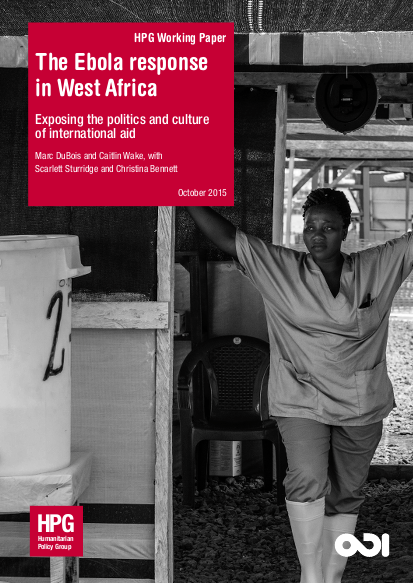
Though often described as unprecedented, the Ebola response reflects long-standing strengths and weaknesses with how aid works. Aid organisations proved dedicated and resourceful but also ill-prepared and insufficiently engaged with local communities.
Although well-used to danger, aid organisations struggled to overcome their fear of the virus and determine how to protect their staff in such an uncertain environment.
This paper looks at a range of problems encountered in West Africa, from weak health systems to a lack of trust, in order to illustrate broader conclusions about the global humanitarian and outbreak response systems.
Ultimately, to avoid repeating mistakes made during the Ebola response, reforms must be implemented with an understanding of the politics and culture of international aid.
Resource collections
- COVID-19 Response Collection
- Learning from crises
- UN Habitat - Urban Response Collection
- Urban Response - Urban Crisis Preparedness and Risk Reduction
- Urban Response Collection - Community Engagement and Social Cohesion
- Urban Response Collection - Economic Recovery
- Urban Response Collection - Environment and Climate Change
- Urban Response Collection - Housing, Land and Property
- Urban Response Collection - Urban Crisis Response, Recovery and Reconstruction
- Urban Response Collection - Urban Resilience